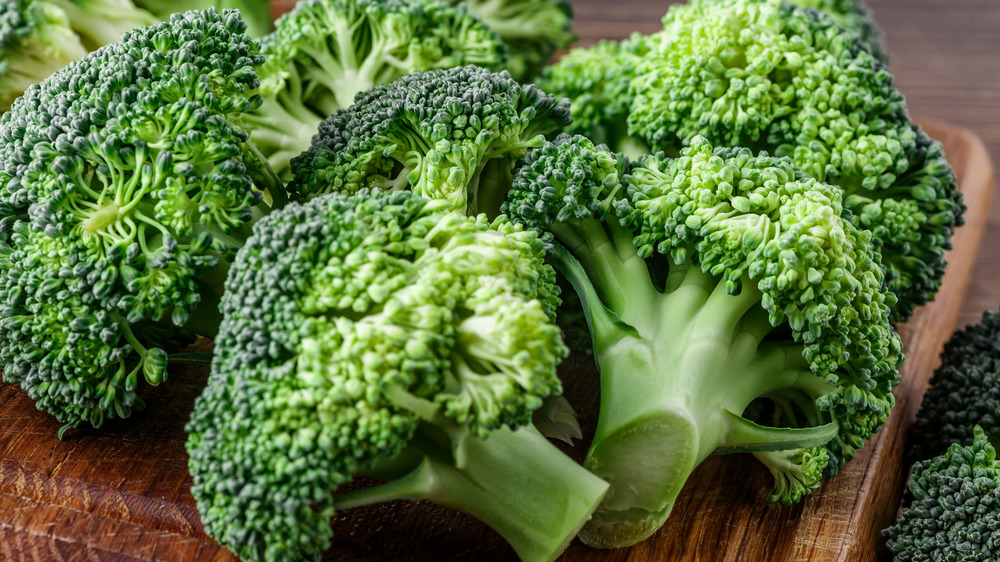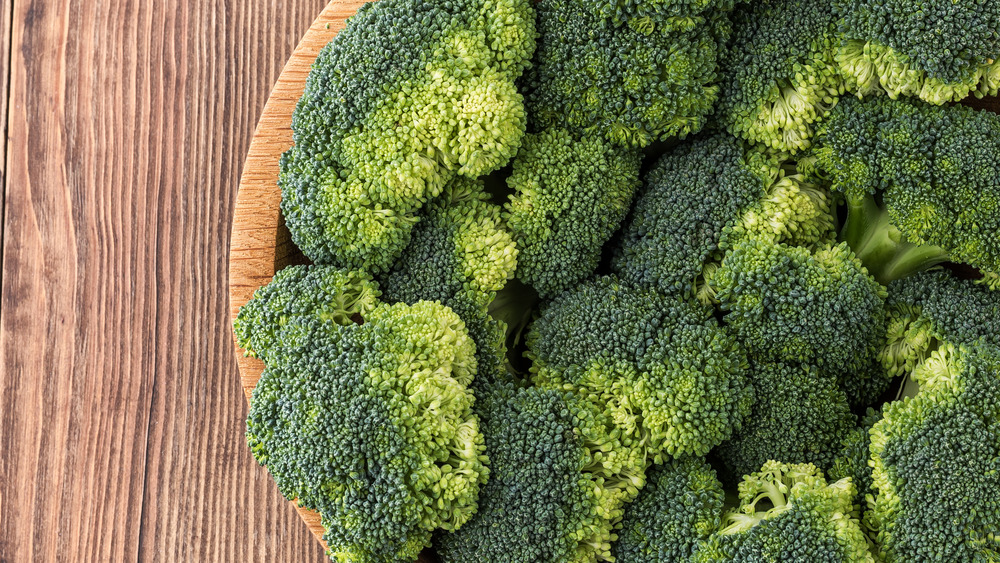When You Eat Too Much Broccoli, This Is What Happens
For years, it has been known that in order to live a healthier lifestyle, one would need to incorporate not only exercise and fruits, but also a good dose of vegetables. Anything from asparagus to carrots to broccoli, the USDA advocates that eating vegetables offers a myriad of benefits to human bodies and can even help lower the risk of people developing chronic diseases like diabetes and cardiovascular disease, to name a few. WebMD notes that veggies provide the body with a whole party of nutrients like fiber, vitamin A, and vitamin C. The publication points out that things like carrots can help with one's vision, too (talk about insightful information). Eating more vegetables can even help people with improved bowel movements, due to the increase of dietary fiber.
But what happens when you eat too much of a good thing? Can too much broccoli be a bad thing for people to eat? Health Digest would suggest that you proceed with caution.
Eating broccoli in excess could be harmful to the body
So if veggies are so healthy, how can broccoli be bad? According to Health Digest, cruciferous vegetables — which include things like broccoli, arugula, cauliflower, and kale (to name a few) — are known to be extremely healthy. But along with all the nutrients like fiber, folate, and vitamins, they also carry something known as goitrogens, the Kresser Institute reports. What are goitrogens, and how exactly are they bad for you?
The institute explains that goitrogens (or goiter) affect the thyroid gland by making it swell up and prevent it from being able to absorb the necessary amounts of iodine it needs. Why is that bad? Health Digest notes that when the thyroid gland doesn't get enough iodine, it can not create the necessary compounds it needs to help the body's metabolism function properly.
Fortunately for all of us, the Kresser Institute reports that there is a simple solution for this. All one would need to do is cook their broccoli properly, and the levels of goitrogens found in the veggie will decrease — by about two-thirds if steaming, and about 90 percent if boiling.

